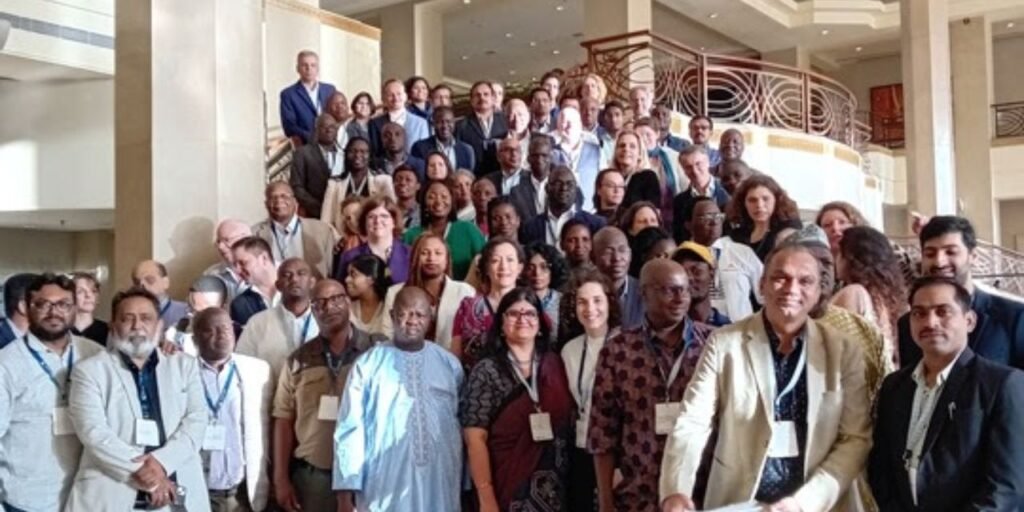
Hamburg, 28 March 2024.
From 11 to 13 March, the Aid by Trade Foundation (AbTF) successfully held its cotton conference in the vibrant city of Mumbai, India. The conference brought together a global network of industry leaders, experts, and stakeholders from the cotton and textile industry. The conference emphasised the urgency of finding solutions to mitigate the effects of climate change on the cultivation of cotton and the lives of smallholder farmers. Another important topic was the increasing demand for transparency, traceability and responsibility in supply chains. The conference in Mumbai delivered a clear message: Valuable approaches can be offered through a combination of regenerative cultivation methods, innovative technologies, and the preservation of indigenous knowledge. Simultaneously, the conference clearly showed that there can be no data, no impact, no traceability, and no transparency without the people in the fields and in the supply chains.
“We rely on innovation as an effective tool to make cotton production ecologically and socially sustainable,”
Tina Stridde, the managing director of the Aid by Trade Foundation, at the opening ceremony. She continued, “Together with our partners, we want to work collaboratively to create a cotton sector that not only generates benefits and opportunities for every stakeholder but also ensures that nature is not harmed or exploited in the process.”
Throughout the conference, participants had the opportunity to delve into the latest developments in sustainable cotton production. The highlight of the first day was the introduction of the new Regenerative Cotton Standard (RCS) by the Aid by Trade Foundation. Set up by the Aid by Trade Foundation in 2023 RCS is the first standard for sustainable cotton that the foundation will introduce in other countries outside Africa such as India. Presentations by experts including Dr Keshav Kranthi (ICAC) and Dr Adam Cobb (Soil Food Web School) highlighted the vital role of microbes in restoring soils stressed by overuse and climatic change. The approach by African People & Wildlife (APW) presented by Alais Ole-Morindat, a Maasai elder from Tanzania, provided inspiring insights into their approach to restoring the balance between nature and people by combining a thoughtful community engagement programme with a data-driven approach to monitoring and assessing impact and feeding all data back to the community. In various formats, experts presented innovative new approaches that enable the industry to use new technologies to meet the challenges small-scale farmers face.
Another key topic at the conference was the increasing demand for traceability of cotton in textile supply chains due to different legal requirements. With its HIP (Hard Identity Preserved) system, which was established five years ago, CmiA delivers a valuable solution to meet the requirements for companies to conduct due diligence within their supply chains. In this context, Torsten Stau, Executive Buying Director Non Food / Indirect Spend REWE Group, reported on their successful path to 100 per cent traceable CmiA cotton in their products thanks to the HIP system.
